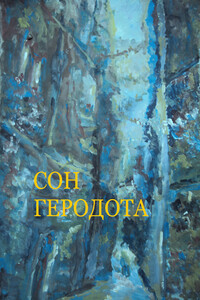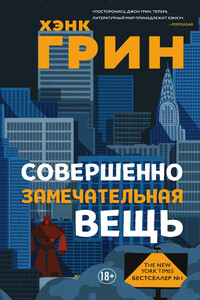36 Arguments for the Existence of God - [5]
“This is the absolute upper limit of what I can offer,” he had said, the slightest seizure distorting his upper lip.
Going back on the Acela Express-this was the first time Cass had ever taken the expensive high-speed train rather than the slower regional or, more often, the Chinatown bus, which makes the run from New York’s Chinatown to Boston’s for fifteen dollars and only occasionally catches fire-the fumes of his euphoria making him so giddy that he had laughed aloud twice and sufficiently startled the starchy matron next to him so that she had changed places well before she detrained at New Haven, Cass had suddenly thought back to the editor’s oddly defensive words and the equally odd look on his face while he had said them, a suppressed smile of some sort making merry with his upper lip.
René Descartes identified the seat of the soul as the pineal gland, but in Cass’s experience it’s the upper lip that reflects the true state of the soul, giving accurate tells on the self-regarding emotions. Self-doubt and self-satisfaction will both betray themselves there. And if there is an egotist lurking within, the upper lip is the place that will give him away.
Flashed by the backside of New London, Connecticut, Cass thought back to the editor’s self-congratulatory upper lip and felt the touch of a misgiving tugging at the edge of his elation. Back in Cambridge, he called Marty Huffer, asking him what he thought of the offer. Ninety seconds after he had hung up with Huffer, Cass’s phone had rung, with Huffer’s agent, Sy Auerbach, on the line.
“You can’t possibly accept a contract for a book like that without representation,” Auerbach had informed-or flattered or rebuked-him.
“But I already all but said yes to him,” Cass tried to explain. “I think I may have verbally committed myself to him.”
“No such thing. From now on, I’m the one he deals with. I’m your representative. Do you get it?”
“I’m not entirely sure.”
“Well, here’s something that might help you process it. If I can’t get you more than that offer, then I’ll forgo my commission.”
“But he was so nice to me.”
The agent laughed, a mirthless noise.
“What did he do that was so nice?”
“Well, for one thing, he took me out to an expensive restaurant.”
“Which restaurant?”
“Balthazar.”
The agent laughed again.
“Listen, if you let that junket to Balthazar persuade you to accept that offer, then that will be the most expensive lunch you’ve ever had. That lunch will cost you hundreds of thousands of dollars.”
Auerbach had held an auction for The Varieties of Religious Illusion, and not only had the Balthazar editor made a bid five times his “absolute upper limit,” but he had been roundly outbid.
Cass has certainly had his moments of doubt about his agent, wondering whether beneath the cynical exterior there was an even more cynical interior. Is he showman or shaman? A little of both, Cass has come to think, but a force for good for all that. Sy Auerbach has an agenda that goes beyond putting the “antic” back in “pedantic” and the “earning” back in “learning.” His idea is that the time has come for a different kind of public intellectual. The old-time intellectuals, who were mostly scientifically illiterate, not knowing their asses from their amygdalas, have been rendered worse than dead; they’ve been rendered irrelevant by the scientists and techno-innovators, who are the only ones now offering ideas with the power and sweep to change the culture at large.
Auerbach harbors such impatience for the glib literati-the “gliberati,” as one of his own digerati had christened them-that Cass has wondered whether there might not be some personal history. In particular, Cass has wondered whether Auerbach might not have known Jonas Elijah Klapper, the man of letters who had once reigned unopposed over vast stretches of the humanities, including Cass Seltzer’s. Certainly, Auerbach must have known of Klapper. There was a time when Jonas Elijah Klapper had been revered by scholars the world over-with the notable exception of the British, whom Klapper had been forced to despise en masse, observing that “they seem to have lost, with their empire, the possibility of understanding me.” The only thing that Klapper, born on the Lower East Side, must have admired about the English was their accent, since he had successfully acquired it. When Sy Auerbach describes the kind of thinker he detests, obscure references rendered in dead languages falling from their lips like flecks of food off a messy eater, it always sounds to Cass as if he’s holding Frankfurter’s former Extreme Distinguished Professor of Faith, Literature, and Values up to his mind’s eye and ticking off his attributes one by one.
For months, Auerbach had only existed as a disembodied voice on the phone, always answering the “hello” with the announcement “Auerbach.” The image that the voice had conjured had been surprisingly on the mark, as Cass learned when he finally met the man at a packed reading Cass had given at the 92nd Street Y. This was almost a year after Auerbach had held the auction for

Как найти свою Шамбалу?.. Эта книга – роман-размышление о смысле жизни и пособие для тех, кто хочет обрести внутри себя мир добра и любви. В историю швейцарского бизнесмена Штефана, приехавшего в Россию, гармонично вплетается повествование о деде Штефана, Георге, который в свое время покинул Германию и нашел новую родину на Алтае. В жизни героев романа происходят пугающие события, которые в то же время вынуждают их посмотреть на окружающий мир по-новому и переосмыслить библейскую мудрость-притчу о «тесных и широких вратах».

«Отранто» — второй роман итальянского писателя Роберто Котронео, с которым мы знакомим российского читателя. «Отранто» — книга о снах и о свершении предначертаний. Ее главный герой — свет. Это свет северных и южных краев, светотень Рембрандта и тени от замка и стен средневекового города. Голландская художница приезжает в Отранто, самый восточный город Италии, чтобы принять участие в реставрации грандиозной напольной мозаики кафедрального собора. Постепенно она начинает понимать, что ее появление здесь предопределено таинственной историей, нити которой тянутся из глубины веков, образуя неожиданные и загадочные переплетения. Смысл этих переплетений проясняется только к концу повествования об истине и случайности, о святости и неизбежности.

Давным-давно, в десятом выпускном классе СШ № 3 города Полтавы, сложилось у Маши Старожицкой такое стихотворение: «А если встречи, споры, ссоры, Короче, все предрешено, И мы — случайные актеры Еще неснятого кино, Где на экране наши судьбы, Уже сплетенные в века. Эй, режиссер! Не надо дублей — Я буду без черновика...». Девочка, собравшаяся в родную столицу на факультет журналистики КГУ, действительно переживала, точно ли выбрала профессию. Но тогда показались Машке эти строки как бы чужими: говорить о волнениях момента составления жизненного сценария следовало бы какими-то другими, не «киношными» словами, лексикой небожителей.

Действие в произведении происходит на берегу Черного моря в античном городе Фазиси, куда приезжает путешественник и будущий историк Геродот и где с ним происходят дивные истории. Прежде всего он обнаруживает, что попал в город, где странным образом исчезло время и где бок-о-бок живут люди разных поколений и даже эпох: аргонавт Язон и французский император Наполеон, Сизиф и римский поэт Овидий. В этом мире все, как обычно, кроме того, что отсутствует само время. В городе он знакомится с рукописями местного рассказчика Диомеда, в которых обнаруживает не менее дивные истории.

Эйприл Мэй подрабатывает дизайнером, чтобы оплатить учебу в художественной школе Нью-Йорка. Однажды ночью, возвращаясь домой, она натыкается на огромную странную статую, похожую на робота в самурайских доспехах. Раньше ее здесь не было, и Эйприл решает разместить в сети видеоролик со статуей, которую в шутку назвала Карлом. А уже на следующий день девушка оказывается в центре внимания: миллионы просмотров, лайков и сообщений в социальных сетях. В одночасье Эйприл становится популярной и богатой, теперь ей не надо сводить концы с концами.

Сказки, сказки, в них и радость, и добро, которое побеждает зло, и вера в светлое завтра, которое наступит, если в него очень сильно верить. Добрая сказка, как лучик солнца, освещает нам мир своим неповторимым светом. Откройте окно, впустите его в свой дом.